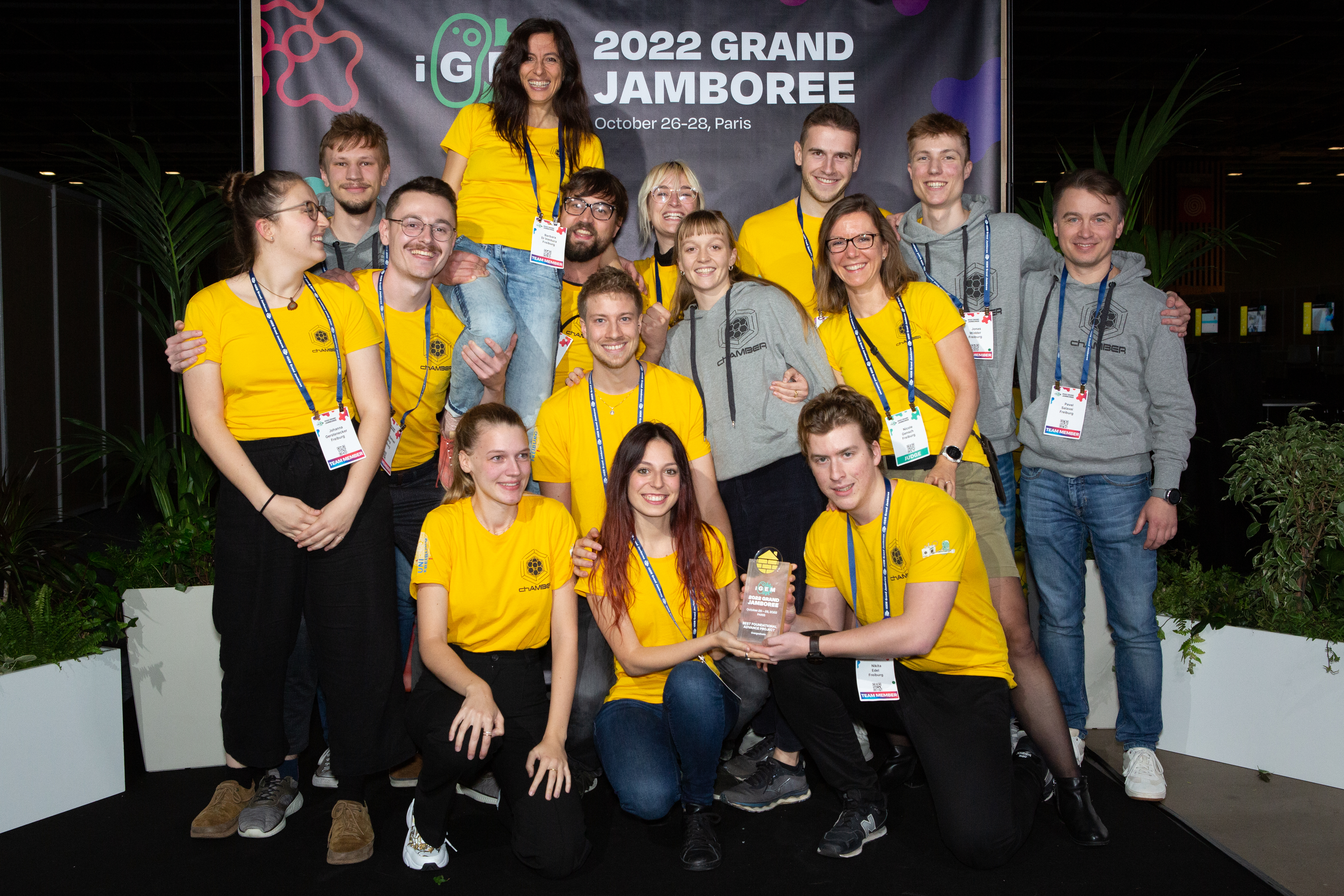chAMBER - Tidying up bacterial cells with natural and engineered nanocompartments
Abstract
Despite their small size, bacteria have sophisticated and dynamic internal organization, featuring distinct microenvironments optimized for a given task, such as carboxysomes that perform CO2 fixation. We aimed to engineer and compare different compartmentalization systems (rigid shells and liquid droplets) for their ability to localize enzymes and promote metabolic processes due to reduced formation of toxic side-products and more efficient interplay between pathway components thanks to physical proximity. Using computational structural biology, we predicted sites at which the incorporation of a non-canonical amino acid (ncAA) could influence pore size. To facilitate the use of ncAAs for future iGEM teams, we developed INCLUSIVE, a database collecting the important information from the literature. Furthermore, we investigated the impact of genome reduction on compartment formation and metabolic pathway output. In conclusion, our project lays the foundations for using compartmentalization as a tool to exploit the full power of bacterial cells.
Wiki
https://2022.igem.wiki/freiburg/
Achievements
- Best Foundational Advance Project Overgraduate
- Gold Medal
Meet The Team

Picture: iGEM Foundation, CC BY 2.0 DEED
Primary PI
Secondary PI
- Dr. Pavel Salavei
Student Members
- Andreas Riedlberger
- Anne Smedegaard Frederiksen
- Fabian Stockert
- Jeremy Ranniger
- Johanna Gerstenecker
- Jonas Widder
- Leon-Samuel Icking
- Michael Spädt
- Nikita Edel
- Pia Gescher
- Selene Franchini

